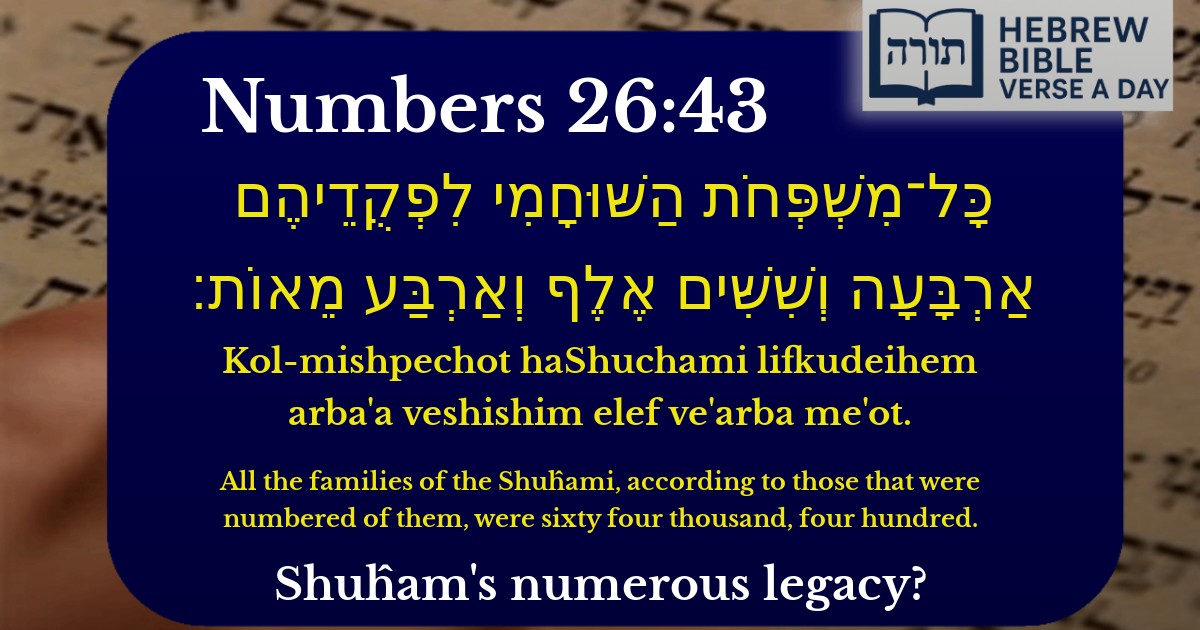Join Our Newsletter To Be Informed When New Videos Are Posted
Join the thousands of fellow Studends who rely on our videos to learn how to read the bible in Hebrew for free!
Hebrew Text
כָּל־מִשְׁפְּחֹת הַשּׁוּחָמִי לִפְקֻדֵיהֶם אַרְבָּעָה וְשִׁשִּׁים אֶלֶף וְאַרְבַּע מֵאוֹת׃
English Translation
All the families of the Shuĥami, according to those that were numbered of them, were sixty four thousand, four hundred.
Transliteration
Kol-mishpechot haShuchami lifkudeihem arba'a veshishim elef ve'arba me'ot.
Hebrew Leining Text
כׇּל־מִשְׁפְּחֹ֥ת הַשּׁוּחָמִ֖י לִפְקֻדֵיהֶ֑ם אַרְבָּעָ֧ה וְשִׁשִּׁ֛ים אֶ֖לֶף וְאַרְבַּ֥ע מֵאֽוֹת׃ {ס}
Parasha Commentary
📚 Talmud Citations
This verse is not quoted in the Talmud.


Context of the Verse
The verse appears in Bamidbar (Numbers) 1:42, as part of the census of the tribes of Israel in the wilderness. The Shuĥami refers to the descendants of Shucham, a son of Dan, as recorded in Bamidbar 26:42. This count reflects the military strength of the tribe of Dan at that time.
Rashi's Commentary
Rashi (on Bamidbar 1:42) notes that the name "Shuĥami" is derived from "Shucham," a son of Dan mentioned later in the Torah. He explains that the Torah sometimes refers to clans by the name of their founding ancestor. Rashi also emphasizes that the counting was done meticulously, as each individual was precious in the eyes of Hashem.
Significance of the Number
The number 64,400 is notable because it shows the substantial size of the tribe of Dan. The Midrash Tanchuma (Bamidbar 12) comments that Dan was one of the most populous tribes, which is why they camped to the north of the Mishkan—their large numbers provided protection for the camp.
Spiritual Lessons
Historical Perspective
The Ibn Ezra observes that the large number of the Shuĥami reflects the fulfillment of Hashem's promise to Avraham that his descendants would be as numerous as the stars. The Malbim adds that this census also served as a preparation for the eventual conquest and settlement of Eretz Yisrael.